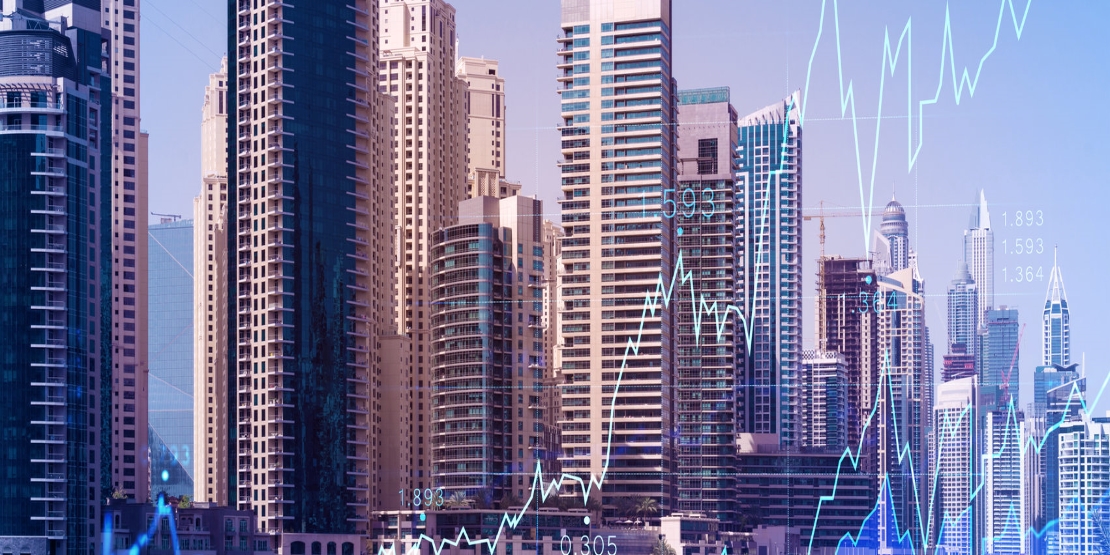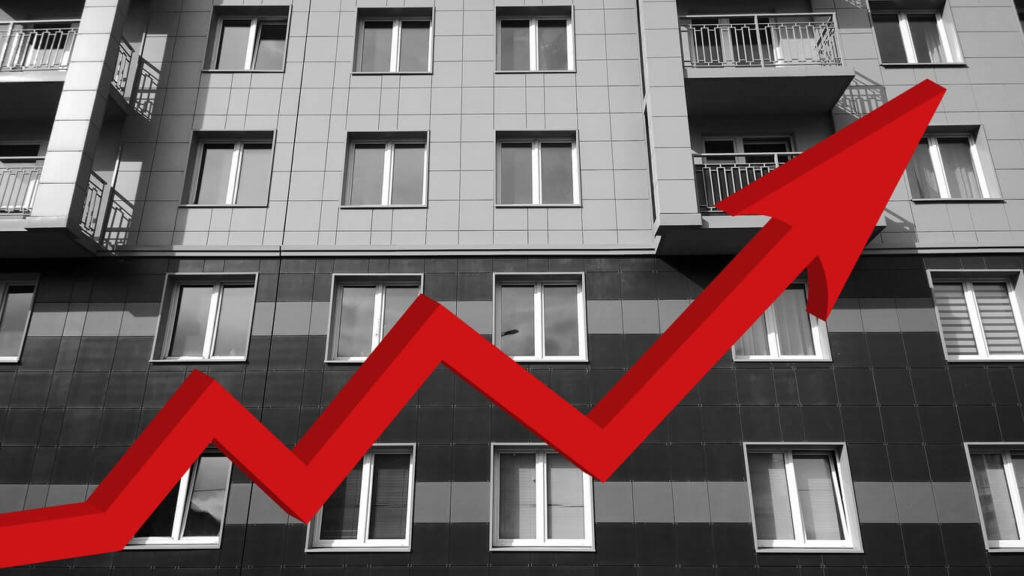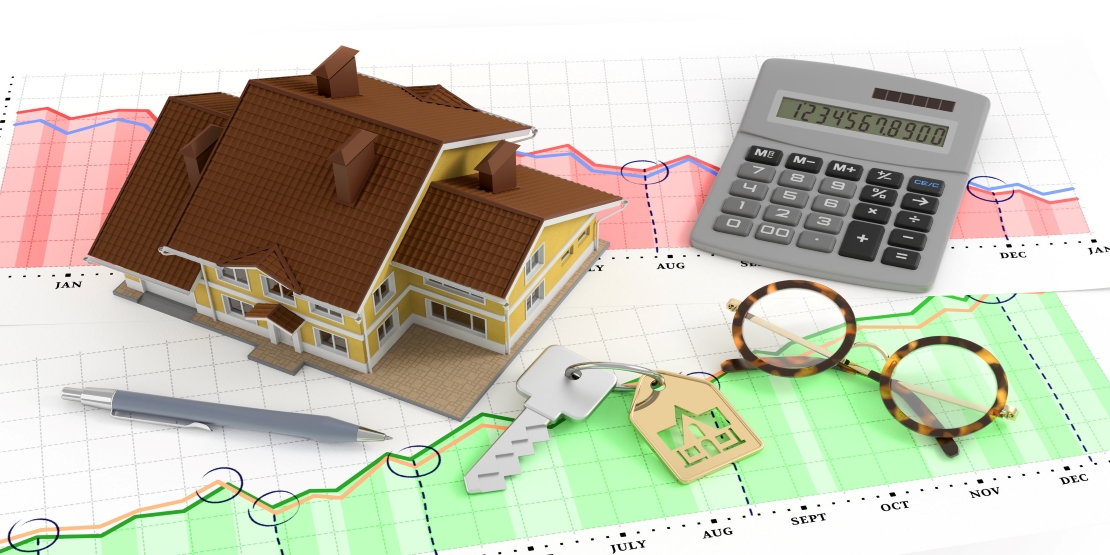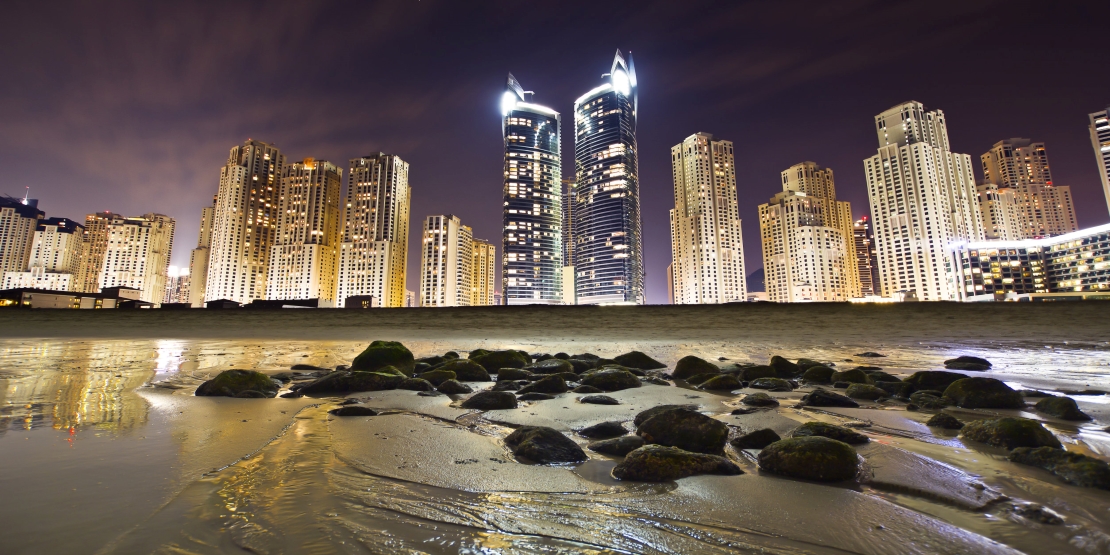From last seventeen years, Dubai Real Estate Market has been at the top of the game with the growing economic statistics and even in terms of the real estate sector. This has been significant in many ways, especially in the sectors of petroleum, architecture, construction, transportation, travel, and real estate. Not just that, but some of these sectors are the driving force for the growth of the city. Dubai’s GDP has been dependent on the dominant sectors including repairing and trade, transportation and storage, real estate and insurance activities. These sectors contribute to the economy of Dubai variably, with the maximum being the trading services, making a contribution of 27.5%, and the minimum being the oil and gas sector, contributing 6%. However, the real estate and construction sector contribute 13% to the economy of Dubai.
Because of this constant growth in the economy of Dubai, the city has witnessed hyped market value and a rise in the hospitality and travel sector due to the increased number of tourists and immigrants that come to Dubai every year. Dubai is a city that keeps bringing innovation and ideas to the table, and the Dubai expo 2020 is without a doubt one of the reasons that contribute to the escalation of the GDP of the country. The economy of Dubai has anticipated substantial foreign investment and greater growth in the GDP of the city after Expo 2020. According to the statistics, the expo was expected to foster economic growth by 10.5%
Factors Affecting the Dubai Real Estate Market

-
Less Immediate Demand for Real Estate in Dubai
In the coming years, the immediate demand for residential real estate might drop because of the altering lifestyles that people are following. People are being drawn towards various activities outside the home, which in turn affects the typology of property that people are willing to buy. People are more directed towards rental properties in Dubai, properties with added benefits, luxury residences, etc.
-
Fewer Showings and Open Houses
After Covid-19 hit the world, the face of sales took a turn. On the one hand, the market for shoes, watches, apparel grew, but on the other hand, people avoided coming to showings and open houses. While the world was struggling with Covid, many markets including the real estate and construction industry suffered variations in the market rates. This led to sellers overcorrecting their prices with the graph of the market.
-
Inflation in the Housing Prices

It is no wonder that there has been a lack of listings available in the sector of affordable housing. Drawing a disparity in this scenario, people are looking for options that might be valued highly, and only a few people can afford those types of properties in Dubai’s real estate.
-
The Technology
However, there might be many cons to what the recent years might bring to the real estate market, but when we talk about Dubai, there is never a dull moment. Particularly, when it solely comes to progression and technological advancements. The innovations and the technology ideas keep on getting better and better in Dubai, and the real estate market might get dependent on that factor at one point in time. Having the house equipped with technologies will make a better bet to list it up on the market.
Scope of Dubai’s Real Estate Market
Dubai was hit by coronavirus like any other city but was soon able to revive from its effects when the property rates varied from going to the lowest, to getting back to normalcy. All of this resulted in property proceedings of up to 34.5%. Since the year 2015, Dubai has been on the front row, mapping growth in the total number of transactions. After the pandemic crisis, there have been amendments in the long-term residency laws, all catering to the recoil in Dubai’s real estate market.
According to the Head of Middle East Research, the real estate market of Dubai has experienced over 15000 residential deals from January to April 2021. In a nutshell, this records 34.5% growth over the same period. While recovering from the back to back blows that Covid cost us, the vaccination drive of the UAE was also one of the contributors, which significantly helped in the growth of the businesses, and their trade value. Additionally, this optimism radiated throughout the market in Dubai.
According to the head of Real Estate Research, who resourced the information from the VPI (Valustrat Price Index), the price performance of the market was 0.9 every month. But, after the pandemic hit Dubai, the value went down by 1.9%. During the mid-2020s, there were relaxations in various sectors in Dubai. This upliftment contributed to the optimistic growth trends, coming with a growth rate of 1.2%. Moreover, villas, in specific, witnessed one of the best capital values and went up to 3%. The head of research, CBRE UAE, mentioned that the residential sectors in the initial four months of 2021 came forward with strong demands, despite the economic fall that the city was experiencing.
Dubai Real Estate Supply-Demand Quotations
The buyer demands have shifted gradually in the real estate market with prompt occupancy, which led to the upsurge in the prices vigorously. This might eventually result in the shifting of transactional activities that further push supply at a slower pace. The backlog of the properties up for sale might shift towards the completion and reselling of these properties. This, in turn, can fill the void with the supply as we discussed earlier.
With the changing market conditions, there have been 10000 new units with 26000 new added units in the first quarter. This is anticipated to be executed in the first year concerning the varying numbers in the Dubai real estate market. On the other hand, the demand for villas is also growing, but the market is not prepared to meet such demands.
Talking about the secondary markets, which are expected to encounter an abrupt growth in the supply. These values are dependent on the location, the typology of the property, and the prices. With this constant demand, the active execution of projects in phases is given. In case the supply needs to be completed by the year 2022, Abad Sacchetto forecasts the number of units to be 89000. She culminated her statement by quoting the pattern that we all have been observing since all these years. The uncertainty puts a bar on the completion of the units, which makes the number of units variable until the year 2022.
There is no question that the Dubai real estate market went through a major setback in the year 2020, especially in November. Gradually, when the city started recovering from the same, the market went through a strong price restoration. With the vigorously rising prices, the potential buyers who were aware of the market prospect can pull back. In April 2021, the existing units which were ready to move in took over the market. Although, the percentage of homes transactions was off-plan by 42.8%.
Seeing all this data, it is pretty evident that even though Dubai’s real estate sector witnessed its share of ups and downs, it was revived in a way that optimistically impacted the Dubai real estate market. With the growing demand for properties of sale in Dubai, there is no doubt that the market is going to prosper and advance in the sector of real estate and construction.
Real Estate Market Predictions of Prime Properties
According to the studies, it was pointed out that most of the submarkets and Dubai’s real estate brands including Emirates Hill, Downtown, MBR City, and Palm Jumeirah have stayed afloat. In the year 2021, the transactional volumes for residential units priced above 3.6 million went up by 41.1% in one year.
The first quarter of the year 2021 has been one of the busiest and one of the prime segments in the real estate market of Dubai since 2015. This also gives green light for the future of the real estate market in Dubai. One of the prime locations, Palm Jumeirah has progressed in getting residential deals, and they doubled especially in the initial months of 2021. With more demand in similar areas, there is definite growth in the real estate market of Dubai.
Their units in Palm Jumeirah have been in demand lately and there has been a hike in the average transactions made for the same. The peak for these demands grew, especially from April 2020 to April 2021. In this particular period of one year, the value increased by 2.4%, resulting in 3.8 million dirhams. The average villa sizes have been constant at 14.1 million dirhams. In April, the Dubai real estate market was contributing to the total market value of around 2.6%, with a monthly growth of 6.7% resulting in 90 deals in this bid.
With the prime location that Palm Jumeirah comes in, most properties were signed and sold within this property trademark only. The sales of 43% of the accounted properties were sold alone from this location, out of which 32 were residential luxury villas. In the first four months of 2021, the sales of the villas were mostly in demand. According to the recorded numbers, the anticipated sale of the villas from Palm Jumeirah is most likely to occur in the coming years. This is one of the most in-demand properties in Dubai’s real estate market because of the amenities and the luxury that this place offers.
Apart from the Palm Jumeirah, other prime neighbourhoods including Emirates Hills have seen growth in selling properties, especially in properties like villas on a square foot basis. Other prime areas include Arabian Ranches, offering affordable luxury houses including areas like Town Square. These areas have provided quite an upliftment to the real estate market of Dubai, which has been shown repeatedly according to the numbers. The scope only tells about the growth of Dubai’s real estate market in the upcoming years from the supply-demand quotations of the place.
According to the research and readings, Dubai has been ranked third among the top three places in the world to reside in, including holiday homes as well. As per the statistics of the market, a 10% posh crowd is bent towards moving to Dubai every year. After the relaxations in the regulations, Dubai has widened the scope of investors and is now open to many groups and communities to come in. With the beautiful properties and infrastructure that Dubai has to offer, who wouldn’t want to be a part of Dubai.
Wrapping Up
Dubai is one of the cities in the real estate market that brings it all with the innovative and luxury infrastructure that it is catering to the community. The sales of residential properties or any typology of property, as a matter of fact, has grown after the Coronavirus hit the world. However, post second-wave of COVID-19, not only Dubai attracts a lot of tourists, and visitors, but also accommodates a lot of immigrants from various regions. With the growing demand for Dubai’s real estate and the urge of people to buy luxury properties, the chart of the market is definitely going upwards and would bring only positive outcomes in the Dubai real estate market.
Some More Useful Articles for you :
| Commercial Trend in Dubai Real Estate | Dubai Real Estate |
| Know The Future of Real Estate in Dubai | Future of Real Estate in Dubai |
| Guide To Real Estate Laws in Dubai | Real Estate Laws in Dubai |
| All About Top Real Estate Builders In Dubai | Top Real Estate Builders In Dubai |
Frequently Asked Question (FAQs)
The Residential Market of the UAE is growing at a compound annual growth rate of 12.36% for the upcoming five years.
Some of the major companies catering to the UAE Residential Real Estate market are as follows: - Aldar Properties - Deyaar Properties - Damac Properties - Nakheel PJSC - Emaar
In recent times, the real estate market has been coming back strongly from a low record. From the hyped demands, the market has improved consumer and investor emotion. A sudden rebound has also been observed in oil and gas prices along with the economic recovery that Dubai has been coming through. What is the growth rate of the UAE Residential Market?
Who are the major property developers in the UAE Residential Real Estate Market?
Is the Dubai real estate market good?







